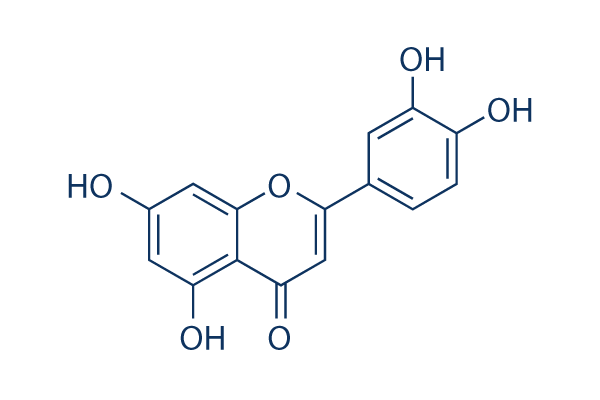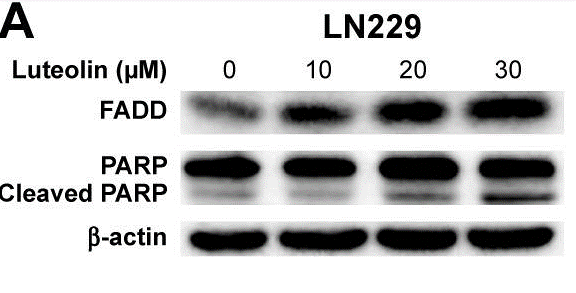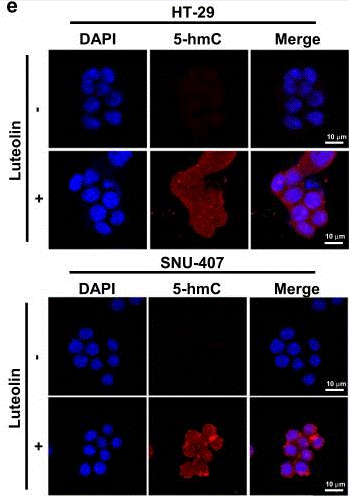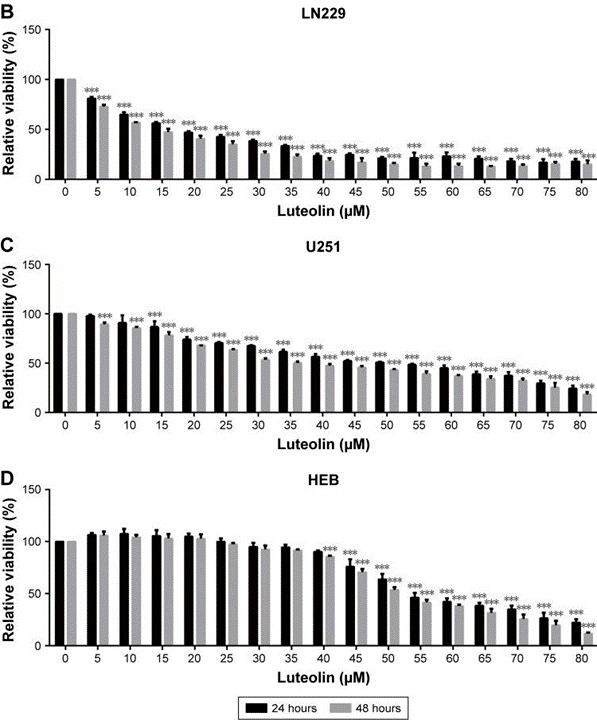
- Bioactive Compounds
- By Signaling Pathways
- PI3K/Akt/mTOR
- Epigenetics
- Methylation
- Immunology & Inflammation
- Protein Tyrosine Kinase
- Angiogenesis
- Apoptosis
- Autophagy
- ER stress & UPR
- JAK/STAT
- MAPK
- Cytoskeletal Signaling
- Cell Cycle
- TGF-beta/Smad
- Compound Libraries
- Popular Compound Libraries
- Customize Library
- Clinical and FDA-approved Related
- Bioactive Compound Libraries
- Inhibitor Related
- Natural Product Related
- Metabolism Related
- Cell Death Related
- By Signaling Pathway
- By Disease
- Anti-infection and Antiviral Related
- Neuronal and Immunology Related
- Fragment and Covalent Related
- FDA-approved Drug Library
- FDA-approved & Passed Phase I Drug Library
- Preclinical/Clinical Compound Library
- Bioactive Compound Library-I
- Bioactive Compound Library-Ⅱ
- Kinase Inhibitor Library
- Express-Pick Library
- Natural Product Library
- Human Endogenous Metabolite Compound Library
- Alkaloid Compound LibraryNew
- Angiogenesis Related compound Library
- Anti-Aging Compound Library
- Anti-alzheimer Disease Compound Library
- Antibiotics compound Library
- Anti-cancer Compound Library
- Anti-cancer Compound Library-Ⅱ
- Anti-cancer Metabolism Compound Library
- Anti-Cardiovascular Disease Compound Library
- Anti-diabetic Compound Library
- Anti-infection Compound Library
- Antioxidant Compound Library
- Anti-parasitic Compound Library
- Antiviral Compound Library
- Apoptosis Compound Library
- Autophagy Compound Library
- Calcium Channel Blocker LibraryNew
- Cambridge Cancer Compound Library
- Carbohydrate Metabolism Compound LibraryNew
- Cell Cycle compound library
- CNS-Penetrant Compound Library
- Covalent Inhibitor Library
- Cytokine Inhibitor LibraryNew
- Cytoskeletal Signaling Pathway Compound Library
- DNA Damage/DNA Repair compound Library
- Drug-like Compound Library
- Endoplasmic Reticulum Stress Compound Library
- Epigenetics Compound Library
- Exosome Secretion Related Compound LibraryNew
- FDA-approved Anticancer Drug LibraryNew
- Ferroptosis Compound Library
- Flavonoid Compound Library
- Fragment Library
- Glutamine Metabolism Compound Library
- Glycolysis Compound Library
- GPCR Compound Library
- Gut Microbial Metabolite Library
- HIF-1 Signaling Pathway Compound Library
- Highly Selective Inhibitor Library
- Histone modification compound library
- HTS Library for Drug Discovery
- Human Hormone Related Compound LibraryNew
- Human Transcription Factor Compound LibraryNew
- Immunology/Inflammation Compound Library
- Inhibitor Library
- Ion Channel Ligand Library
- JAK/STAT compound library
- Lipid Metabolism Compound LibraryNew
- Macrocyclic Compound Library
- MAPK Inhibitor Library
- Medicine Food Homology Compound Library
- Metabolism Compound Library
- Methylation Compound Library
- Mouse Metabolite Compound LibraryNew
- Natural Organic Compound Library
- Neuronal Signaling Compound Library
- NF-κB Signaling Compound Library
- Nucleoside Analogue Library
- Obesity Compound Library
- Oxidative Stress Compound LibraryNew
- Plant Extract Library
- Phenotypic Screening Library
- PI3K/Akt Inhibitor Library
- Protease Inhibitor Library
- Protein-protein Interaction Inhibitor Library
- Pyroptosis Compound Library
- Small Molecule Immuno-Oncology Compound Library
- Mitochondria-Targeted Compound LibraryNew
- Stem Cell Differentiation Compound LibraryNew
- Stem Cell Signaling Compound Library
- Natural Phenol Compound LibraryNew
- Natural Terpenoid Compound LibraryNew
- TGF-beta/Smad compound library
- Traditional Chinese Medicine Library
- Tyrosine Kinase Inhibitor Library
- Ubiquitination Compound Library
-
Cherry Picking
You can personalize your library with chemicals from within Selleck's inventory. Build the right library for your research endeavors by choosing from compounds in all of our available libraries.
Please contact us at [email protected] to customize your library.
You could select:
- Antibodies
- Bioreagents
- qPCR
- 2x SYBR Green qPCR Master Mix
- 2x SYBR Green qPCR Master Mix(Low ROX)
- 2x SYBR Green qPCR Master Mix(High ROX)
- Protein Assay
- Protein A/G Magnetic Beads for IP
- Anti-DYKDDDDK Tag magnetic beads
- Anti-DYKDDDDK Tag Affinity Gel
- Anti-Myc magnetic beads
- Anti-HA magnetic beads
- Poly DYKDDDDK Tag Peptide lyophilized powder
- Protease Inhibitor Cocktail
- Protease Inhibitor Cocktail (EDTA-Free, 100X in DMSO)
- Phosphatase Inhibitor Cocktail (2 Tubes, 100X)
- Cell Biology
- Cell Counting Kit-8 (CCK-8)
- Animal Experiment
- Mouse Direct PCR Kit (For Genotyping)
- New Products
- Contact Us
Luteolin
Synonyms: Luteoline, Luteolol, Digitoflavone
Luteolin (Luteoline, Luteolol, Digitoflavone) is a flavonoid found in Terminalia chebula, which is a non-selective phisphodiesterase PDE inhibitor for PDE1-5 with Ki of 15.0 μM, 6.4 μM, 13.9 μM, 11.1 μM and 9.5 μM, respectively.

Luteolin Chemical Structure
CAS: 491-70-3
Selleck's Luteolin has been cited by 24 Publications
1 Customer Review
Purity & Quality Control
Batch:
Purity:
99.71%
99.71
Related compound libraries
Choose Selective ADC Cytotoxin Inhibitors
Cell Data
| Cell Lines | Assay Type | Concentration | Incubation Time | Formulation | Activity Description | PMID |
|---|---|---|---|---|---|---|
| mouse RAW264.7 cells | Function assay | 2 h | Inhibition of NO production in LPS-stimulated mouse RAW264.7 cells pre-incubated for 2 hrs before LPS stimulation for 24 hrs by Griess assay method, IC50=0.21 μM | 25176187 | ||
| HEK293 FS cells | Function assay | Inhibition of NOX4 expressed in HEK293 FS cells assessed as H2O2 production by H2O2/Tyr/LPO assay, IC50=0.85 μM | 20731357 | |||
| CHO cells | Function assay | Agonist activity at rat DAT expressed in CHO cells, EC50=1.45 μM | 20971650 | |||
| human MV4-11 cells | Cytotoxicity assay | 72 h | Cytotoxicity against human MV4-11 cells harboring FLT3 mutation after 72 hrs by tetrazolium based Ez CyTox cell viability assay, GI50=1.76 μM | 23411073 | ||
| HEK293 cells | Function assay | 24 h | Agonist activity at mouse PPARgamma expressed in HEK293 cells co-expressing with Gal4 reporter vector after 24 hrs by dual-luciferase reporter assay, EC50=2.3 μM | 24955889 | ||
| human U2OS cells | Function assay | 5 h | Agonist activity at GPR35 receptor in human U2OS cells coexpressing Gal4-VP16-TEV assessed as beta arrestin translocation after 5 hrs by beta lactamase reporter gene assay, EC50=3.2 μM | 24900447 | ||
| RBL-2H3 cells | Function assay | Inhibitory activity against IL-4 production in RBL-2H3 cells was determined, IC50=3.7 μM | 12951092 | |||
| human mast cells | Function assay | Inhibition of SYK in human mast cells assessed as reduction in mast cell degranulation, EC50=4.5 μM | 22257213 | |||
| human LNCAP cells | Function assay | Downregulation of prostate specific antigen secretion in human LNCAP cells, IC50=5 μM | 25019478 | |||
| rat H9c2 cells | Function assay | 24 h | Cytoprotective activity against doxorubicin-induced cytotoxicity in rat H9c2 cells assessed as cell viability after 24 hrs by MTT assay, EC50=5.53 μM | 20932762 | ||
| human HT-29 cells | Function assay | 10 mins | Agonist activity at GPR35 receptor in human HT-29 cells after 10 mins by dynamic mass redistribution assay, EC50=7.24 μM | 24900447 | ||
| human RS4:11 cells | Cytotoxicity assay | 72 h | Cytotoxicity against human RS4:11 cells harboring wild type FLT3 after 72 hrs by tetrazolium based Ez CyTox cell viability assay, GI50=7.25 μM | 23411073 | ||
| NCI-H460 cells | Function assay | 2-20 h | Inhibition of ABCG2 expressed in human NCI-H460 cells assessed as inhibition of PhA accumulation after 2 to 20 hrs relative to fumitremorgin C, IC50=8.9 μM | 21275386 | ||
| human H9 cells | Function assay | 3 days | Antiviral activity against HIV1 3B infected in human H9 cells assessed as inhibition of viral replication after 3 days by p24 antigen capture assay, EC50=10 μM | 8158164 | ||
| MDCK cells | Cytotoxicity assay | Cytotoxicity against MDCK cells by MTT assay, CC50=12.44 μM | 18640042 | |||
| mouse B16-4A5 cells | Function assay | 72 h | Inhibition of theophylline-stimulated melanogenesis in mouse B16-4A5 cells after 72 hrs, IC50=14 μM | 20189399 | ||
| K562 cells | Growth inhibition assay | 5 days | Growth inhibition of K562 cells by XTT assay after 5 days, IC50=14.65 μM | 17411092 | ||
| human H9 cells | Cytotoxicity assay | 3 days | Cytotoxicity against human H9 cells after 3 days, IC50=16 μM | 8158164 | ||
| human HT-29 cells | Function assay | 10 mins | Desensitization of GPR35 receptor in human HT-29 cells assessed as inhibition of zaprinast-induced dynamic mass redistribution after 10 mins, IC50=18.6 μM | 24900447 | ||
| human U937 cells | Proliferation assay | 72 h | Antiproliferative activity against human U937 cells after 72 hrs by WST-8 assay, IC50=20 μM | 17158054 | ||
| mouse HT22 cells | Function assay | 3 h | Neuroprotective activity in mouse HT22 cells assessed as t-BOOH-induced toxicity at 40 uM preincubated for 3 hrs followed by t-BOOH induction measured after 9 hrs by MTT assay | 24245939 | ||
| human THP1 cells | Function assay | 20 μM | 1 h | Downregulation of TPA-induced NOX2 mRNA expression in human THP1 cells at 20 uM incubated for 1 hr prior to TPA challenge measured after 24 hrs by RT-PCR analysis | 23786520 | |
| MDA-MB-231 cells | Function assay | 5 μM | 16 h | Inhibition of PMA-stimulated NF-kappaB signaling (unknown origin) expressed in MDA-MB-231 cells at 5 uM incubated for 16 hrs by luciferase reporter gene assay | 25190466 | |
| HL60 cells | Proliferation assay | 30 μM | 48 h | Antiproliferative activity against human HL60 cells at 30 uM after 48 hrs by MTS assay | 18258440 | |
| Click to View More Cell Line Experimental Data | ||||||
Biological Activity
| Description | Luteolin (Luteoline, Luteolol, Digitoflavone) is a flavonoid found in Terminalia chebula, which is a non-selective phisphodiesterase PDE inhibitor for PDE1-5 with Ki of 15.0 μM, 6.4 μM, 13.9 μM, 11.1 μM and 9.5 μM, respectively. | ||||||||||
|---|---|---|---|---|---|---|---|---|---|---|---|
| Targets |
|
| In vitro | ||||
| In vitro | Luteolin is a flavonoid found in Terminalia chebula, which is a non-selective phisphodiesterase PDE inhibitor for PDE1-5 with Ki of 15.0 μM, 6.4 μM, 13.9 μM, 11.1 μM and 9.5 μM, respectively. [1] Luteolin inhibits LPS-stimulated TNF-alpha production with an IC50 of less than 1 μM. Luteolin inhibites LPS-induced phosphorylation of Akt as well as IkappaBalpha. [2] |
|||
|---|---|---|---|---|
| Experimental Result Images | Methods | Biomarkers | Images | PMID |
| Western blot | FADD / PARP / Cleaved PARP Caspase-3 / Cleaved Caspase-3 / Caspase-8 / Cleaved Caspase-8 ERK / p-ERK / JNK / p-JNK / p38 / p-p38 / Bax / Bcl-2 p-VEGFR2 / p-mTOR / pS6K1 / p70S6K1 / pAKT / AKT / MMP-2 / MMP-9 p21 / Survivin / Cyclin D1 DNMT1 / DMNT3A / DNMT3B TET1 / TET2 / TET3 |

|
30992674 | |
| Immunofluorescence | 5-hmC |

|
30988303 | |
| Growth inhibition assay | Cell viability |

|
30992674 | |
| In Vivo | ||
| In vivo |
LD50: Mice >2500mg/kg (i.g.) [3] |
|
|---|---|---|
Chemical lnformation & Solubility
| Molecular Weight | 286.24 | Formula | C15H10O6 |
| CAS No. | 491-70-3 | SDF | Download Luteolin SDF |
| Smiles | C1=CC(=C(C=C1C2=CC(=O)C3=C(C=C(C=C3O2)O)O)O)O | ||
| Storage (From the date of receipt) | |||
|
In vitro |
DMSO : 33 mg/mL ( (115.28 mM); Moisture-absorbing DMSO reduces solubility. Please use fresh DMSO.) Water : Insoluble Ethanol : Insoluble |
Molecular Weight Calculator |
|
In vivo Add solvents to the product individually and in order. |
In vivo Formulation Calculator |
||||
Preparing Stock Solutions
Molarity Calculator
In vivo Formulation Calculator (Clear solution)
Step 1: Enter information below (Recommended: An additional animal making an allowance for loss during the experiment)
mg/kg
g
μL
Step 2: Enter the in vivo formulation (This is only the calculator, not formulation. Please contact us first if there is no in vivo formulation at the solubility Section.)
% DMSO
%
% Tween 80
% ddH2O
%DMSO
%
Calculation results:
Working concentration: mg/ml;
Method for preparing DMSO master liquid: mg drug pre-dissolved in μL DMSO ( Master liquid concentration mg/mL, Please contact us first if the concentration exceeds the DMSO solubility of the batch of drug. )
Method for preparing in vivo formulation: Take μL DMSO master liquid, next addμL PEG300, mix and clarify, next addμL Tween 80, mix and clarify, next add μL ddH2O, mix and clarify.
Method for preparing in vivo formulation: Take μL DMSO master liquid, next add μL Corn oil, mix and clarify.
Note: 1. Please make sure the liquid is clear before adding the next solvent.
2. Be sure to add the solvent(s) in order. You must ensure that the solution obtained, in the previous addition, is a clear solution before proceeding to add the next solvent. Physical methods such
as vortex, ultrasound or hot water bath can be used to aid dissolving.
Tech Support
Answers to questions you may have can be found in the inhibitor handling instructions. Topics include how to prepare stock solutions, how to store inhibitors, and issues that need special attention for cell-based assays and animal experiments.
Tel: +1-832-582-8158 Ext:3
If you have any other enquiries, please leave a message.
* Indicates a Required Field
Frequently Asked Questions
Question 1:
Would you please suggest a suitable vehicle to dissolve Luteolin for in vivo i.p. use?
Answer:
Formula: 5% DMSO+40% PEG 300+5% Tween80+ddH2O, working Solution concentration: up to 7.5mg/ml, stable for 30min.
Tags: buy Luteolin | Luteolin supplier | purchase Luteolin | Luteolin cost | Luteolin manufacturer | order Luteolin | Luteolin distributor







































